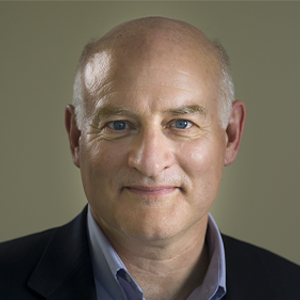Honors for Gagna and Sundquist
Gagna named health care hero

Claude Gagna was recognized by the Long Island Business News as a 2025 Health Care Hero in the innovation category. He is one of 25 honored individuals recognized. Gagna received the award for the groundbreaking diagnostic tool he developed that uses artificial intelligence to streamline diagnostics and improve patient outcomes. The Health Care Hero awards are administered at the state level and aim to identify outstanding leaders in the health care industry.
Gagna is a professor of biological and chemical sciences at New York Institute of Technology. He is also an adjunct professor at the Rutgers New Jersey Medical School. His lab develops DNA and RNA technologies to study gene function, complex DNA structures, cell death and spatial genomics as well as novel diagnostics.
He has received many awards, including being named an Outstanding Faculty Member of the Year by New York Tech and elected to the Alpha Omega Alpha Honor Medical Society and the New Jersey Inventors Hall of Fame. Gagna also received a Gold Medal from the U.S. Army for supporting veterans at New York Tech and was named the New Jersey inventor of the year. He holds multiiple patents and has published conference proceedings, abstracts, book chapters, review articles, case studies, methodologies, undergraduate lab manuals and peer-reviewed research articles.
Sundquist wins AAAS breakthrough award

Wesley Sundquist received the American Association for the Advancement of Science Mani L. Bhaumik Breakthrough of the Year Award for his role in finding that HIV’s cone-shaped capsid was a target for treatment. This finding eventually led to the discovery of lenacapavir, the first HIV drug that protects individuals from infection for six months. Sundquist shares the $250,000 award with Moupali Das of Gilead Sciences and Yvette Raphael of the organization Advocacy for Prevention of HIV in Africa. The award is named for Bhaumik, a physicist passionate about scientific innovation.
“These individuals represent the three arms of what is necessary to create new science and then translate it for the world in a way that is really able to make a difference,” Megan Ranney, dean of the Yale School of Public Health and part of the committee that selected the winners, said.
Sundquist, the chair and a distinguished professor of biochemistry at the University of Utah, started focusing on HIV in the 1990s, when HIV deaths were increasing globally. The Sundquist lab continues to study the cellular, molecular and structural biology of retroviruses, including HIV, and the roles of the ESCRT pathway in cell division.
Sundquist has received many honors for his research, including the Louisa Gross Horwitz Prize, the American Society for Biochemistry and Molecular Biology‒Amgen Award and the Rosenblatt Prize for Excellence. In 2021, he was named to the first class of ASBMB fellows. He has served on the ASBMB Council and previously chaired the Public Affairs Advisory Committee. Sundquist has been elected to the American Academy of Arts and Sciences as well as the National Academy of Sciences.
Enjoy reading ASBMB Today?
Become a member to receive the print edition four times a year and the digital edition monthly.
Learn moreGet the latest from ASBMB Today
Enter your email address, and we’ll send you a weekly email with recent articles, interviews and more.
Latest in People
People highlights or most popular articles

Building a career in nutrition across continents
Driven by past women in science, Kazi Sarjana Safain left Bangladesh and pursued a scientific career in the U.S.

Kiessling wins glycobiology award
She was honored by the Society for Glycobiology for her work on protein–glycan interactions.

2026 ASBMB election results
Meet the new Council members and Nominating Committee member.

Simcox wins SACNAS mentorship award
She was recognized for her sustained excellence in mentorship and was honored at SACNAS’ 2025 National Conference.

From humble beginnings to unlocking lysosomal secrets
Monther Abu–Remaileh will receive the ASBMB’s 2026 Walter A. Shaw Young Investigator Award in Lipid Research at the ASBMB Annual Meeting, March 7-10 in Washington, D.C.

Chemistry meets biology to thwart parasites
Margaret Phillips will receive the Alice and C. C. Wang Award in Molecular Parasitology at the ASBMB Annual Meeting, March 7-10 in Washington, D.C.

